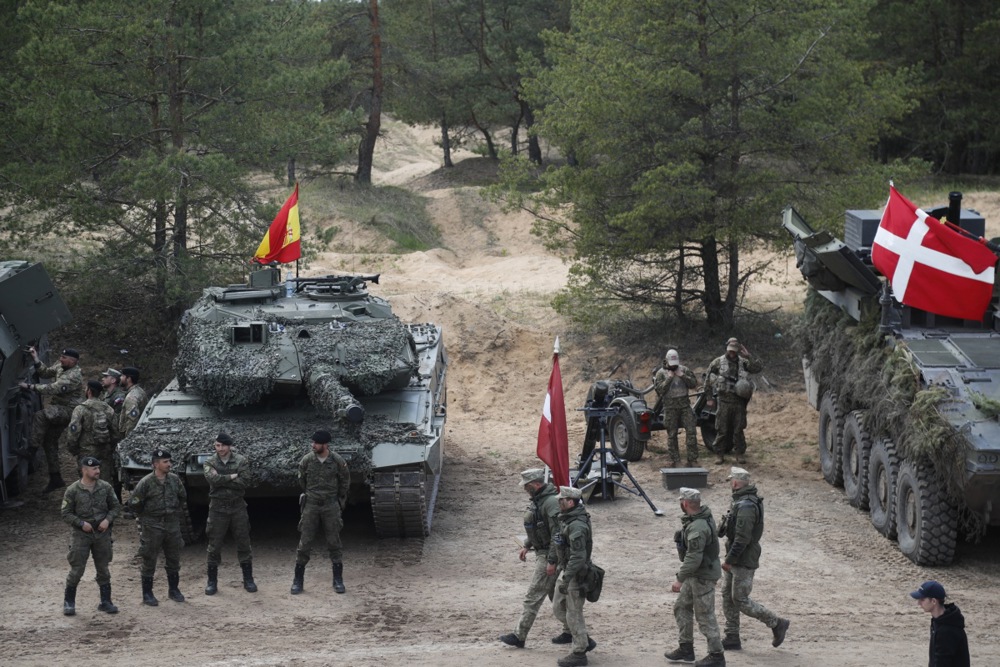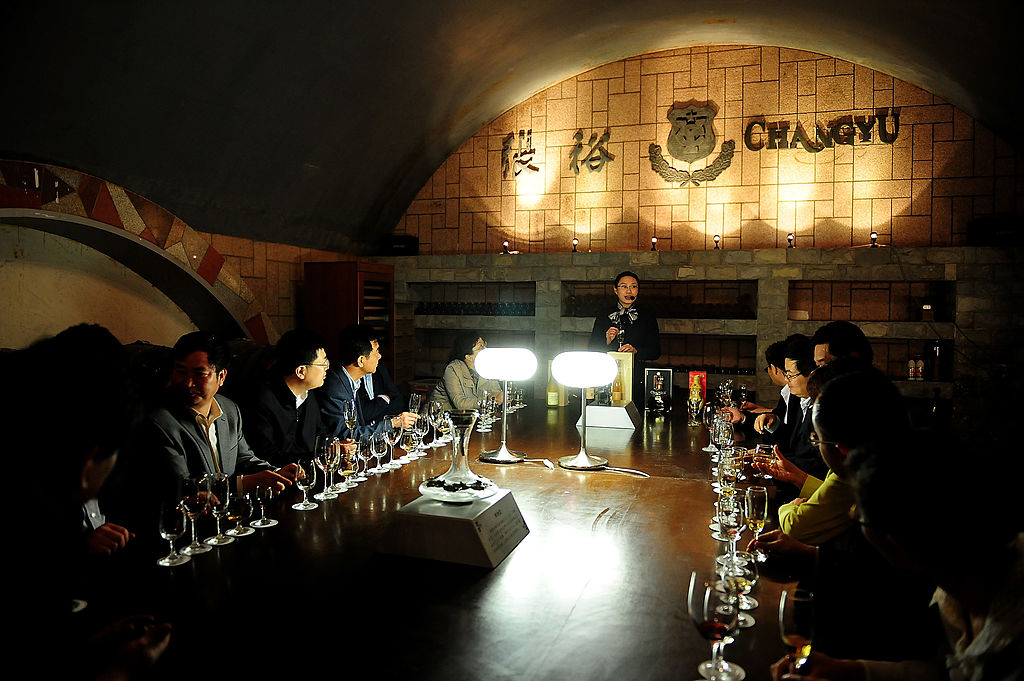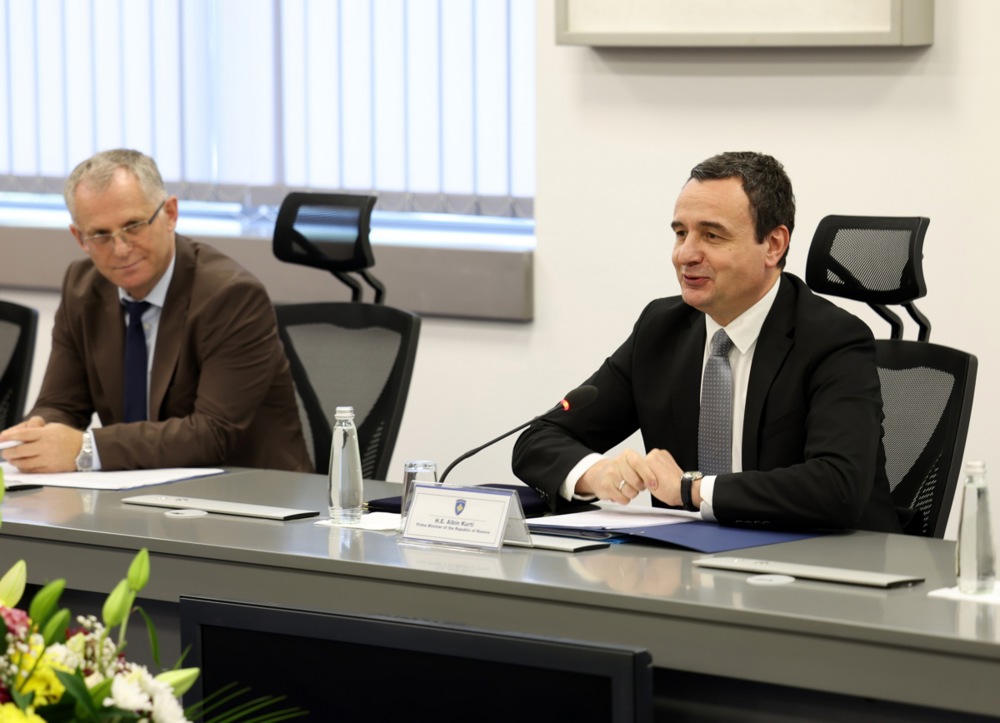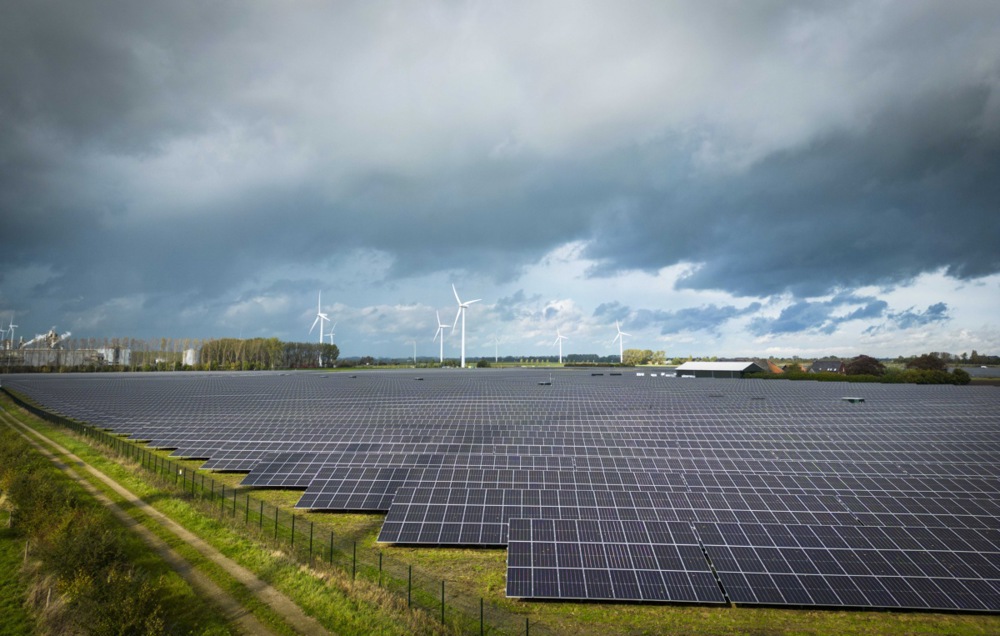The European Commission presented its first industrial defence strategy on March 5, along with a €1.5 billion subsidy scheme.
The strategy aims to help member states scale up their defence production to meet Ukraine’s need for armaments, while also benefiting Europe’s own defence industry.
The Commission wants to “achieve defence industrial readiness in the European Union,” it says.
Investments will not only go to Europe’s big defence companies. The EU executive said it envisages separate funding for small and mid-sized businesses, and will aim to spread the benefits geographically.
The current plans foresee EU subsidies of €1.5 billion to serve as an incentive for member states to develop their own defence sector.
The programme, called European Defence Industry through Common Procurement, envisages that EU members will jointly procure at least 40 per cent of defence equipment by 2030.
By 2030, at least 50 per cent of EU defence spending should be spent in the EU itself. By 2035, the target goes up to 60 per cent.
“After decades of under-spending, we must invest more on defence, but we need to do it better and together,” said Josep Borrell, High Representative of the Union for Foreign Affairs and Security Policy.
“A strong, resilient, and competitive European defence industry is a strategic imperative and a pre-condition to enhance our defence readiness.”
He continued: “This Strategy marks a paradigm shift towards a Union that is a strong security and defence actor and a better partner, in line with objectives of the Strategic Compass.”
We are adopting our first ever defence industrial strategy and proposes a new defence industry programme to enhance its readiness and security.
Press conference by Executive Vice-President @vestager, HR/VP @JosepBorrellF and Commissioner @ThierryBreton ↓ https://t.co/WQDCPdYDVb
— European Commission (@EU_Commission) March 5, 2024
The strategy is designed help build what the EU calls the European Defence Technological and Industrial Base (EDTIB), with additional opportunities now that European countries are investing to rebuild their armies.
“Member States need to invest more, better, together, and European,” the Commission said.
The Commission also calls for member states to achieve more coordination, cooperation and streamlining, with other EU members, and with Ukraine and NATO.
We are working to take our defence industry to the next level.
Today we will present a new defence industrial strategy – to make Europe move from emergency response to readiness.#EUDefence pic.twitter.com/V53iNWaMYy
— European Commission (@EU_Commission) March 5, 2024
“We do so to respond to changes in Europe’s security paradigm,” said Margrethe Vestager, the Commission’s executive vice-president.
Up until now, “EU countries spend on too many different weapons systems, primarily bought from outside the EU,” she said.
“We should invest better, which largely means investing together, and investing European. This will enable us to move from a crisis response mode, to one of structural defence readiness. In a manner that closely integrates Ukraine,” she said.
“With the return of high intensity conflict on our continent, Europe cannot wait any longer to strengthen the European defence technological and industrial base’s ability to produce more and faster,” said Thierry Breton, the EU’s commissioner for the internal market.
It is time Europe “wakes up”, two years after the war in Ukraine started, said Ursula von der Leyen, President of the European Commission.
The construction of an expanded, common European defence industry is a big shift from the EU’s self-labelled image as a peace project.
Brussels has long projected Europe as a post-war continent, one that used diplomacy and economy as the main tools to convince others.
Today we set our vision for defence readiness with Europe’s defence industrial strategy.
It will support Member States to not only spend more, but better, together and European.
And link Ukraine’s know-how with our defence industry to facilitate innovation.
— Ursula von der Leyen (@vonderleyen) March 5, 2024
PAX, a major Dutch peace organisation, does not believe more European money is needed for the defence industry, its spokesman Frank Slijper told Brussels Signal.
“The money should be used more efficiently,” he said.
Coordination and cooperation on a European scale “have been issues for a very long time now, but apparently, it remains a difficult subject in the EU,” said Slijper.
“There are enough purchase orders, the demand for weapons has risen enormously in the last years. But just like all other industries, the weapons industry needs to carry its own weight.
“Now, the Commission is spending a huge amount of money on weaponry, and these subsidies could lead to inefficiency and waste of funds, while harmonising should in fact lead to being able to achieve more with the same money.”
Rhetoric about building a war economy was “nonsensical”, Slijper added.
“Europe is not at war. There is a war at the border. That is serious, but Russia has a war economy, not the EU. It is dangerous rhetoric,” he said.





